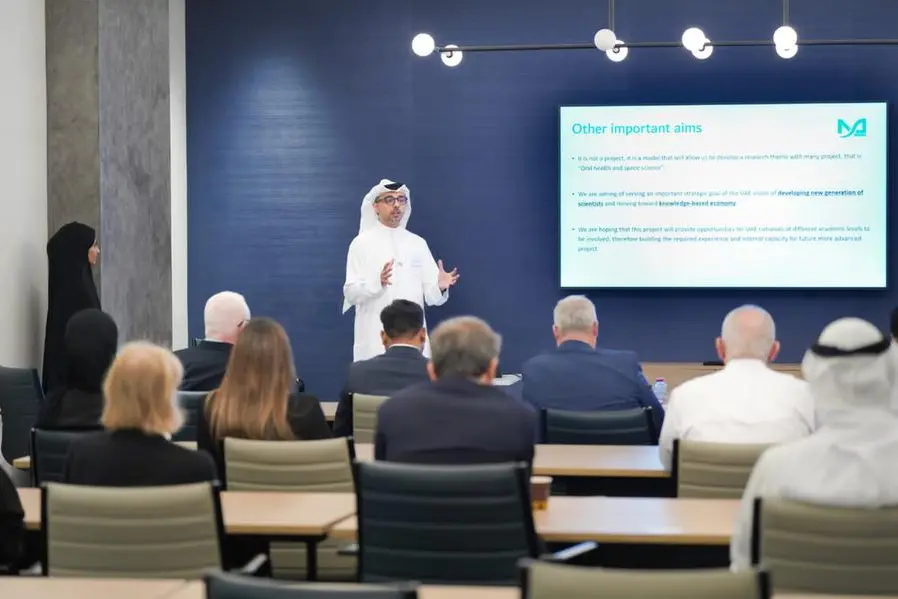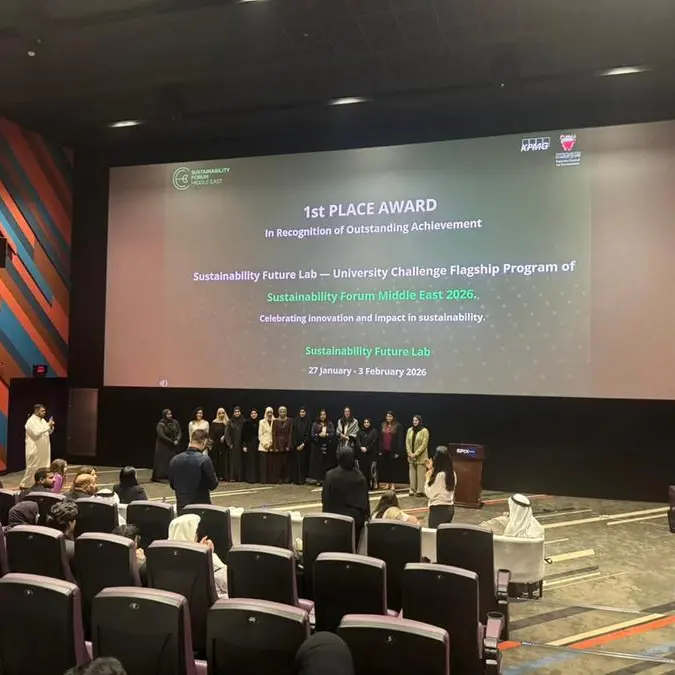PHOTO
Dubai, UAE: The Mohammed Bin Rashid Space Centre (MBRSC) hosted the first UAE Space Life Sciences Meeting bringing together the scientific community. Attended by professors and researchers from local and international universities, the meeting covered a range of topics including a comprehensive overview of the historic longest Arab space mission undertaken by Emirati astronaut Sultan AlNeyadi, along with a look into the Centre’s Space Life Sciences Programmes, as well as presentations from research collaborators.
The meeting was attended by esteemed institutions such as Mohammed Bin Rashid University of Medicine and Health Sciences (MBRU), United Arab Emirates University (UAEU), American University of Sharjah (AUS), Khalifa University (KU), and the University of Malta.
During the event, attendees were introduced to UAE Mission 2, which detailed AlNeyadi's mission to the ISS. The session provided a thorough overview of his mission, explored the science investigations he undertook, and highlighted the educational significance of his journey. The researchers present were also made familiar with the research study application form related to this mission.
In another session during the day, the Centre's dedication to advancing space life sciences was emphasized through insights into their diverse programmes. This included the ambitious UAE Astronaut Program Research (UAEAP) Grants and their collaborative venture with the Japan Aerospace Exploration Agency (JAXA) for the Protein Crystal Growth Program.
Furthermore, the meeting provided a platform for MBRSC’s research collaborators to showcase their contributions. The Maleth Program, which champions life science research in space, was a noteworthy highlight. The UAEAP Research Grants Programme collaborators presented their innovative projects: the Human Physiology Project and the Oral Health Project, both managed by MBRU. Collaborative efforts in the Protein Crystal Growth Programme were also showcased, featuring studies like the protein molecule GIRK2 by MBRU and research on the seeded crystallization of Furin spearheaded by KU.
-Ends-
For Media Queries:
MBRSC Media Team - mbrsc@quillmena.com
ABOUT MOHAMMED BIN RASHID SPACE CENTRE (MBSRC):
MBRSC is an advanced scientific and technological hub, responsible for making the UAE a world leader in space services and exploration.
Established in 2006, the Mohammad Bin Rashid Space Centre (MBRSC) started out with five engineers, who took it upon themselves to develop their capabilities and expand their knowledge in the field of space, relying on strong will and solid determination. Since then, the centre has continued its journey to be the incubator of the “UAE National Space Programme”. The MBRSC has undertaken the tasks of building, developing, and operating a number of Earth observation satellites, providing imaging services, analysing and studying them, as well as producing relevant data to scientific communities and research centres around the world. Among the satellites that the centre operates are DubaiSat-1 & DubaiSat-2. The MBRSC is also responsible for KhalifaSat, celebrated as the first satellite that was fully built by Emiratis in 2018. Recently, the centre revealed its plan to develop the new satellite MBZ-SAT, which is expected to be launched at the end of 2023 and to be the latest in the field of high-resolution imaging from outer space.




















